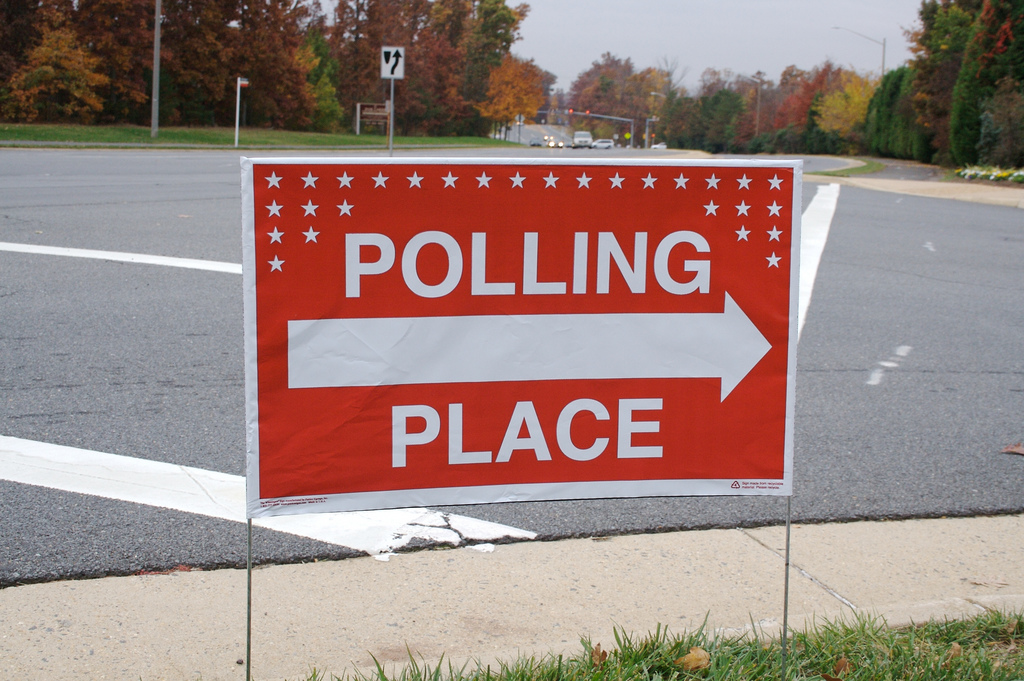A recent review of the Virginia Department of Elections (ELECT) by the Joint Legislative Audit and Review Commission (JLARC) has found that the state agency has a political bias towards Democrats. The 75-page report points to the perception of party favoritism and a faulty IT system, which has led to an “environment of open support for one party over the other” under leadership appointed by then-Governor Terry McAuliffe.
During the analysis of the agency, JLARC staffers conducted interviews with local voter registrars and people working for state elections committees. In a report from the Richmond Times-Dispatch, Jaime Bitz, a chief legislative analyst for JLARC, said that interviews revealed there was “a perception of political bias that was reflected in decisions about certain policies and certain agency operations.”
It was found that former leaders of ELECT had directed staffers to aid Democratic groups in skirting campaign finance laws, as well as mandatory provisions that require political groups to place their names on advertisements.
“We heard of one example where the previous deputy commissioner at the agency very openly stated to a number of people, including to one high-level elections official in Virginia, that one of her key responsibilities was to help Hillary Clinton be elected president,” Bitz said during an interview.
Although there were no findings that supported any effort to sway elections, Virginia Republicans had their suspicions confirmed insofar as how ELECT was run under the leadership of Democrat McAuliffe.
Speaker of the Virginia House of Delegates Kirk Cox (R-Colonial Heights) weighed in on the development, calling the political bias within the agency “devastating,” and “disconcerting.”
“If there’s any group that has to have integrity, if there’s any group that has to be nonbiased, it’s got to be this group,” Cox said.
Currently, three positions, the elections commissioner and two other high-ranking positions, are filled by the governor at the agency. The JLARC report claims this makes the agency vulnerable to political influence and leadership turnover every four years. Although Governor Ralph Northam kept the incumbents at the agency that McAuliffe appointed, Northam did not reappoint former Elections Commissioner Edgardo Cortés.
Instead, Northam appointed Chris Piper, a former executive director of the Virginia Conflict of Interest and Ethics Advisory Council and deputy director of the Virginia Tobacco Region Revitalization Commission, to run the agency.
Nonetheless, in its report, JLARC said the General Assembly could consider eliminating the chief deputy commissioner and confidential policy adviser from the agency. They suggested that the legislature should create a new “director of operations position” that would not be subject to whomever is sitting in the governor’s office.
The JLARC report suggested several other measures lawmakers could take to address recent problems surrounding elections in Virginia.
The report found that Virginia’s information system that state and local officials use to maintain the list of the Commonwealth’s 5.5 million registered voters is “not sufficiently functional or reliable.” Registrars have long complained about the slow speeds of the computer system and frequent crashes. The Virginia Election and Registration Information System (VERIS) crashed in October 2016, just before the deadline to register to vote in the last presidential election. The situation led to a federal court ordering Virginia to reopen voter registration.
Event though the General Assembly has already dedicated $2 million to rebuilding the system, the JLARC report suggested the possibility of a full system replacement.
Notwithstanding the issues, Virginia’s voter rolls are “mostly accurate,” the JLARC report found. Furthermore, JLARC staff said they found no “verifiable evidence” of widespread voter fraud.
“Because the vast majority of elections in Virginia are won by relatively large margins of victory, for most races there would have to be a substantial number of instances of single-ballot voter fraud to result in the wrong person being elected to office,” the report explained. Nevertheless, U.S. News & World Report found that approximately “12 percent of state House elections and 4 percent of state Senate elections have been decided by fewer than 1,000 votes in the last decade.”
After election officials found that hundreds of voters had been assigned to the wrong House of delegates district in the Fredericksburg area last year, the JLARC report recommended legislation to require ELECT to conduct periodic checks to make sure voters are in the right district and take action to ensure localities and the state agree on local boundary lines.





